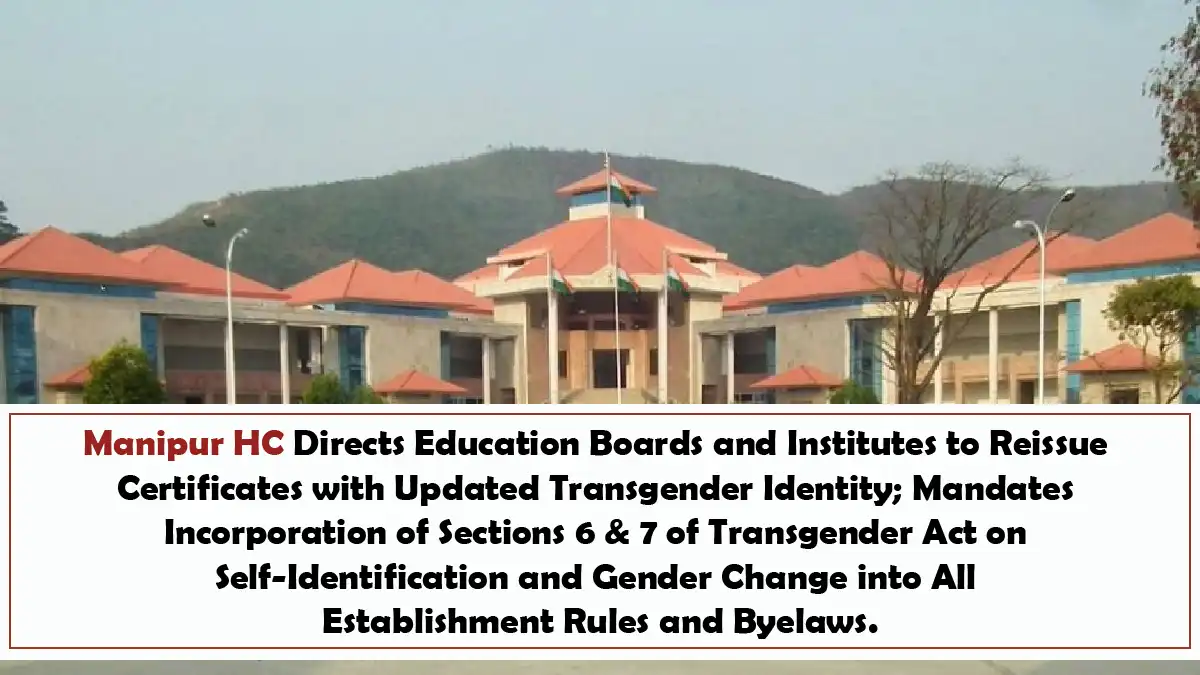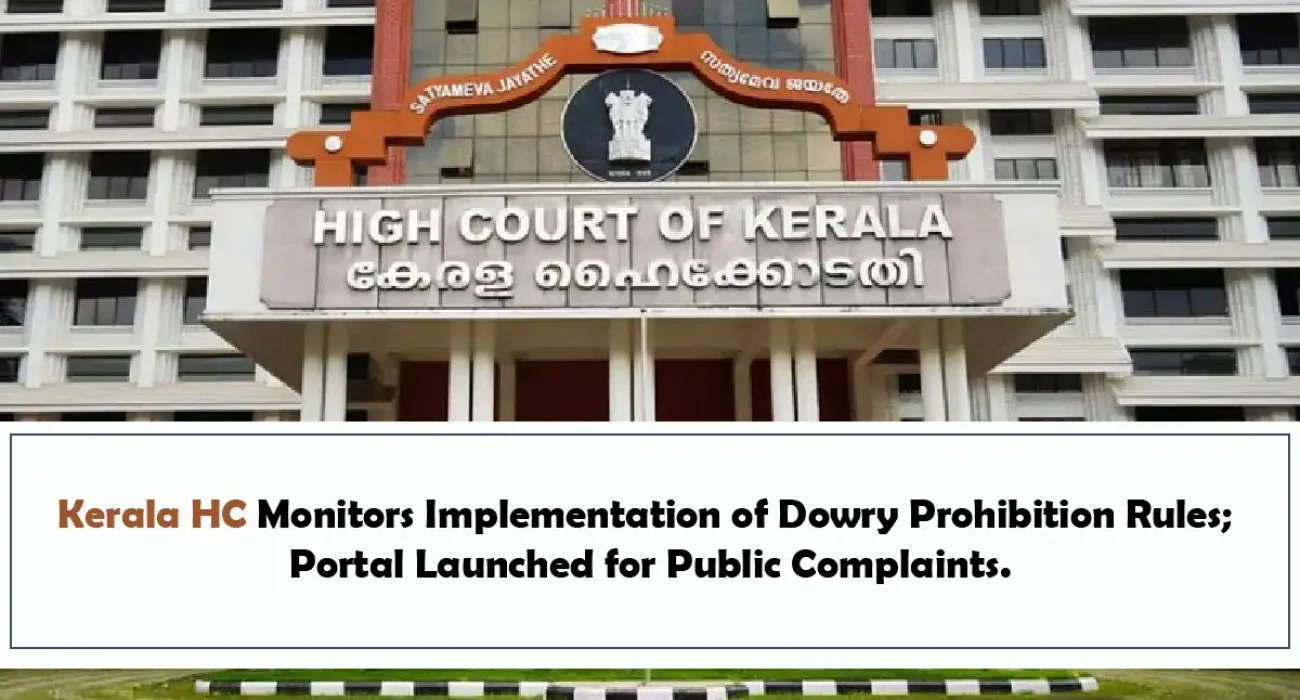

The petitioner, T, a 29-year-old law graduate and public policy professional, filed a Public Interest Litigation (PIL) before the Kerala High Court. She sought directions to ensure accountability and transparency in the implementation of the Dowry Prohibition Act, 1961, the Dowry Prohibition (Maintenance of Lists of Presents to the Bride and Bridegroom) Rules, 1985, and the Kerala Dowry Prohibition Rules, 2004. Specifically, her concern related to Rule 5 of the 2004 Rules, which obliges authorities to maintain data on complaints regarding dowry and report on the actions taken.
The petition highlighted systemic lapses in the handling of complaints and stressed that despite legislative and regulatory safeguards, dowry practices continue to thrive due to inadequate monitoring and enforcement. The PIL was heard by a Division Bench comprising Chief Justice Nitin Jamdar and Justice Basant Balaji.
In response, the State filed a counter affidavit through the Director of the Women and Child Development Department, who also functions as the Chief Dowry Prohibition Officer. The State disclosed that a Dowry Prohibition Portal had been launched, allowing members of the public to file complaints online, thereby strengthening access to justice and transparency. The affidavit also noted that a Standard Operating Procedure (SOP) for implementation of the Dowry Prohibition Act was under preparation and would be released shortly.
Additionally, the affidavit clarified that after the 2021 amendment to the Kerala Dowry Prohibition Rules, District Women and Child Development Officers were formally designated as District Dowry Prohibition Officers across all 14 districts.
The petitioner argued that while anti-dowry legislations and rules exist, their enforcement remains ineffective because complaints are neither adequately recorded nor acted upon with transparency. She contended that Rule 5 of the Kerala Dowry Prohibition Rules, 2004 requires authorities to maintain records of complaints and provide action-taken reports. However, in practice, there was little clarity on how such complaints were processed and whether effective redressal was provided.
She further emphasized that the absence of accountability in handling dowry-related complaints undermines the legislative intent behind the Dowry Prohibition Act, 1961, thereby leaving victims without meaningful remedies. The petitioner therefore sought judicial intervention to direct the State to provide an action-taken report and ensure compliance with the law.
The State of Kerala, through its affidavit, submitted that significant steps had already been taken to improve the implementation of the anti-dowry laws. It informed the Court that a dedicated Dowry Prohibition Portal had been launched for the public to file complaints online. The portal, according to the State, enables complainants to directly reach the competent authorities, thereby bridging the gap between victims and enforcement agencies.
The State also assured the Court that an SOP under the Dowry Prohibition Act was being finalized to standardize complaint handling procedures. Further, the State highlighted the structural reforms undertaken in 2021, whereby District Women and Child Development Officers were appointed as District Dowry Prohibition Officers, with the Director of Women and Child Development serving as the Chief Officer for the State.
The State expressed regret that though data regarding complaints was referred to in its affidavit, it had inadvertently not been annexed. A copy of the data was subsequently tendered in Court, showing complaints received and the actions taken under Rule 5 of the 2004 Rules.
The Union of India, represented by the Central Government Counsel, submitted that it would be filing its counter affidavit to place on record its stand in the matter.
The Division Bench, after hearing the submissions, noted that the State had filed its counter affidavit outlining measures taken to strengthen the anti-dowry enforcement mechanism, including the establishment of the online portal. The Court took on record the State’s tendered apology for the failure to annex complaint data earlier and accepted the subsequent filing of the same during the hearing.
The Court observed that transparency in handling dowry complaints was essential to ensure public confidence in the system. It emphasized that accountability mechanisms, such as data disclosure and effective complaint redressal, were intrinsic to the successful implementation of the Dowry Prohibition Act and the Kerala Dowry Prohibition Rules.
The Bench also recorded the submission of the Central Government Counsel that the Union of India would be filing its counter affidavit and granted liberty to the petitioner to respond to the same.
The Kerala High Court directed the State to annex and serve upon the petitioner the data concerning complaints received and action taken under Rule 5 of the Kerala Dowry Prohibition Rules, 2004. The Court also granted liberty to the petitioner to file a reply once the Union of India’s counter affidavit was filed.
The matter was posted for further hearing on 16 September 2025, with the Court making it clear that accountability in the implementation of dowry prohibition laws would continue to be monitored.
Written by Adv. Deeksha Rai
IAW resources
Browse our help directory